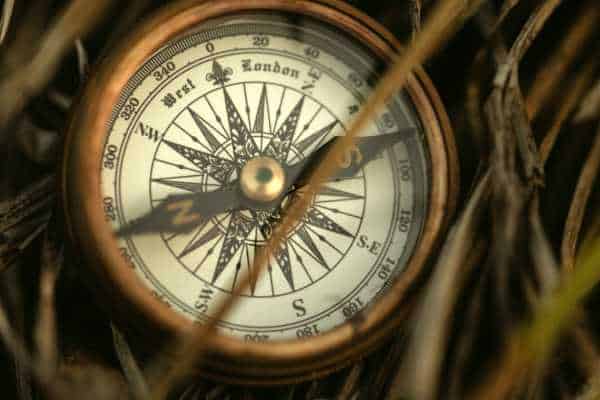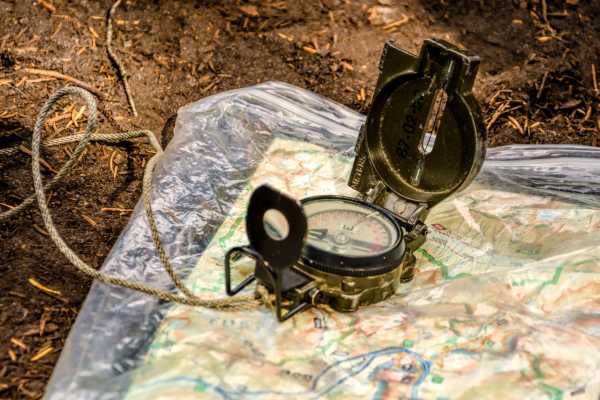People don’t realize how important their spiritual health is. Spiritual beliefs affect mindset and mental and physical health. A healthy spiritual lifestyle needs the right tools. A spiritual map and compass navigation tools are essential for success. Do you know what they are and how to use them?
The compass and map are analogies. An analogy infers that if something is similar in some respects, it probably agrees in others. It compares things to show a similarity. Use this word picture to help you remember the tools and processes needed to calibrate and align our spiritual path. If you are going to develop a plan, you need the right tools for spiritual growth and wellness.
What is a Spiritual Map?
This map is the device that provides insight into our spiritual landscape. It can show us where we are in our spiritual walk. To do this, we must be able to see and decipher the map. But our lives are complicated; we have several things going on simultaneously.
Sorry, but this map isn’t found in any holy book. This map is the landscape of your mind and your life. So, everyone’s map is unique. Many people wander through life without any clue of their spiritual direction. They may join a religion and think, well, they will tell me what to think and believe, and I’ll be alright. But they find out too late they have wasted a lot of time and resources as pawns in the battle to control the cultural narrative.
To see the landscape requires clarity of conscience and depth of understanding of who we are and the legacy we want to leave. Together, these qualities of consciousness help us see reality from the proper perspective. So, increasing the bandwidth of awareness and depth of conscience will help you see the territory. If we lack in either, it is easy to get off course.
A map shows you where we want to go. Sadly, many people do not see the landscape of their lives. They go through life under the spell of consumerism, religion, or Ego. All three keep you from seeing where you are in the spiritual territory. They prevent you from seeing where you are in the landscape of your existence.
What is a spiritual map? It is the insight to make an honest appraisal of the landscape of life. Here’s where you need to shine a light on your spiritual and political beliefs and actions to see if they are harmless or harmful. Religion can’t be used as a smokescreen to hide your prejudices. If you infringe upon the rights of others to make decisions about their lives, then you are harming them. (1)
Commercialism and religion are similar; they are distractions. They keep you from gaining the insight necessary to see. You only have so much time. You’ll need to find out where you are and where you want to go with your life. Then, you’ll need to map out a plan to get there. So, you need to identify the tools you need to get there.
What is Your Moral Spiritual Compass
Religions use the term moral compass to describe actions they deem right or wrong. So, morality is a subjective finding based on religion.
Here, use the analogy of a compass to describe the tools of your intellect and intuition. These are the machines of the intellect. The map is the territory of life. It’s where you make decisions about your spiritual direction. The fruit of your actions will either be harmful or harmless, but you can’t use the bias and prejudice of religion to hide your actions. Religious beliefs do not provide a valid excuse to harm others.
The key to a healthy mind is cultivating intellect and intuition in equal proportion. To achieve this balance, you need to assess where you spend time and adjust your time accordingly. You can enhance your intellect by reading a variety of subjects. Science, math, and logic are tools that positively affect the intellect. Science and logic should be the basis of your thinking because they calibrate your spiritual compass.

Learning to hear the voice of your intuition requires quieting your internal dialogue. Many forms of meditation can achieve this state of silence. The more we stay in touch with this spiritual directional device, the greater the probability of staying on track. This moral direction is something that develops in childhood.
Ask yourself, what direction is my spiritual map and compass leading me in? What direction is it pointing me in? Am I able to find and use my compass?
The formative years up to eight years old is when our minds are the most susceptible to the programming of values and beliefs. If we have the proper unbiased guidance, we learn to respect all people and living things. Second, we learn to share and care. We don’t need a set of rules or religion to live a moral life. All we need are examples of people showing us how to do it. We need practical examples.
As people grow into adulthood, their spiritual nature prompts them to seek the unknown. If we develop our intuition, it will lead us to the right teachers. The right teacher or resource will give you the tools to enrich your journey. It’s essential to cultivate a beginner’s mindset and take charge of the content and the spiritual direction of your path. Don’t become a follower. Think for yourself, and be a freethinker. Above all, avoid the counterfeit answers of organized religion.
Creating a Plan for Spiritual Growth
Your spiritual trajectory is the path you take to develop the gifts of your spirit. It would help if you first learned to use these tools, take them into the field, and find your way to the objective. (2)
We all strive for a fulfilling and purposeful life where we experience a sense of contentment and peace. While several factors contribute to our overall well-being, our spirituality and sense of connection with a higher power are paramount. Regardless of your beliefs, spirituality is the foundation of life that shapes our moral compass and outlook on the world. So, why should you create a plan using a spiritual compass and map? Here are just a few of the benefits:
1. Clarity: Learning to use the spiritual map and compass navigation tools provides clarity in an overwhelming and confusing world. They help you better understand your emotions, thoughts, and behaviors, allowing you to identify patterns and habits that may be holding you back.
2. Direction: You’ll no longer feel lost in the wilderness of life. You’ll have a clear direction to follow, and you’ll be able to make decisions with confidence, knowing that you’re on the right path.
3. Connection: These tools for spiritual growth help you connect with something greater than yourself. Whether it’s a higher power, nature, or the universe, you’ll feel a sense of connection and belonging that can be incredibly grounding and fulfilling.
4. Growth: By following your spiritual compass and map, you’ll experience personal growth and transformation. You’ll be challenged to confront your fears and limitations, and you’ll emerge stronger, wiser, and more compassionate.
5. Purpose: Finally, when you know how to use your spiritual map and compass navigation tools, you will discover your purpose in life. By aligning your actions with your values and beliefs, you’ll be able to live a more meaningful and purposeful life.
Above all, it is important to have a written plan for spiritual growth. If you write down your plan’s goals, you are much more likely to achieve them.
How to Tell if Your Spiritual Compass is Broken?
Our spiritual moral compass is an internal guide that directs our actions and beliefs and serves as a reference point for our moral decision-making. Our beliefs and values are at the heart of this device, which determines what we consider right or wrong.
To define this spiritual moral compass, you start by listing your core values and beliefs. Ask yourself what motivates you, what inspires you, and what you desire to become. Once you have clarified your values and beliefs, use them to develop a set of principles and standards to guide your actions. With your spiritual moral compass in place, you can move forward with confidence and clarity on your spiritual journey.
1. Feeling lost without direction: If you’re unsure what you want or what direction you should take, you might have a broken spiritual and moral compass.
2. Disconnected from positive values: If you feel indifferent toward your values and ebb away from them, your spiritual compass might be out of tune. If you lose empathy and sympathy for others, these are all signs of brokenness.
3. Struggling with self-doubt: If you lack confidence in yourself and second guess, your actions, values, and beliefs might need some attention.
4. Experiencing negative emotions: When you feel anxious, sad, or angry, more often than not, it could be because your spiritual compass is not aligned and you’re living out of sync with your values. If you have constant physical pain, this is a sign of cognitive dissonance. This results from trying to resolve conflicting values, which can happen when your beliefs don’t align with reality.
5. Actions reflect harmful sectarian ideologies: Harmful religious beliefs reflect sectarian bias and prejudice. You live with a sense of fear or anger driven by extremist political or religious beliefs. Other lifestyles and beliefs upset you. So, you seek to control people with a different sexual orientation, lifestyle, or spiritual belief.
If you follow a Supreme Being, does it justify hating, discriminating, or harming others who do not belong to your sect? Are you taught to hate others because of who they are or what they believe? Do your beliefs promote discrimination? Do they give preferential treatment because of ethnic background, gender, or gender identity? If you answer yes to any of these, your spiritual directional device is not working correctly.
To fix your compass, you must overcome all biases and prejudice. Otherwise, your spiritual direction is likely harmful to yourself and others. If your compass is defective, you can’t see your map either.
Signs You’ve Lost Your Spiritual Map
Your spiritual compass and map are tools that you use together. Your map is the landscape of your life, direction, identity, and legacy. Signs you’ve lost your map include:
1. Loss of purpose: You used to have a sense of direction and meaning in life, but now you feel like you’re just going through the motions. Being consumed with monetary gains and career achievements leaves us empty because these are all temporary.
2. Lost connection with core beliefs: Your beliefs used to be a foundation for your convictions, but now you’re not sure where you stand on issues that used to matter to you. If fear, anger, and hatred are the focus of your thinking and actions, it is time for a change. Otherwise, your continued silence about individual rights and social and economic justice will continue to erode.
3. Stop practicing self-care: Your spiritual map used to emphasize the importance of taking care of yourself, but now you’re neglecting your physical, emotional, and mental health.
4. Feel like something is missing: You’re not sure what it is, but you feel like there’s a void in your life that you can’t fill. This is your soul telling you that these important spiritual tools are offline.
If any of these signs sound familiar, it is time to create a plan for spiritual growth to reconnect these navigational tools. This can mean exploring new beliefs, finding a community that shares your values, and taking time to reflect on what’s important to you. Remember, your spiritual compass and map are unique to you, so there’s no right or wrong way to go about rediscovering them. The important thing is to listen to your heart and follow your intuition. With time and patience, you’ll find your way back onto an authentic spiritual path.
Fixing Your Spiritual Map and Compass Navigation Tools
Calibrating our moral compass tells us what is right and wrong. Our compass depends on the health of our mind, intellect, and intuition. The map is not the terrain. But if we need the compass and map to help us navigate, we need to know where we are and how to get where we want to go. Otherwise, we are lost. Finding where we are on the map requires an honest appraisal of our spiritual location.
“Truth is not to be found outside. No teacher, no scripture can give it to you. It is inside you, and if you wish to attain it, seek your own company. Be with yourself.” — Bhagwan Shree Rajneesh, Osho
The Tools for Spiritual Growth — Fixing Your Spiritual Compass
1. Eliminate the source of harmful programming: The organized religions of Christianity, Islam, and Judaism use groupthink manipulation and self-hypnosis tactics to install harmful sectarian beliefs. These beliefs infect your thinking, removing your connection to your spiritual map and compass.
2. Self-Reflection: Take time to reflect on your thoughts, feelings, and actions. Journaling and meditation can be effective tools to help you gain clarity and connect with yourself again. If sectarian thoughts and values infect your mind, journaling will show you in black and white what you need to remove.
3. Reconnect with the values of your innocent soul: Identify the values essential to building a healthy, inclusive world that respects all people and all living things. These are the values you were born with before you were exposed to religion.
4. Practice gratitude: Gratitude towards life and every little detail of it plays a major role in aligning oneself with the compass again.
5. Technologies to Expand the Mind: There are four groups of tools for spiritual growth that you can use to help identify and repair your spiritual map and compass navigation abilities.
— Analytical Tools
— Meditation
— Awareness Tools and Techniques
— Natural Healing Modalities
6. Surround yourself with positivity: Surround yourself with people who uplift you and inspire you with their positive energy. Please make sure they are people who demonstrate inclusive values.
Inclusion promotes welcoming and respecting people from all walks of life, irrespective of their backgrounds, beliefs, or identities. We must embrace inclusive values that carefully balance individualism and collectivism to achieve true inclusion. These positive values manifest in specific ways:
— Showing Empathy: Empathy is the capacity to understand and share the feelings of others. In an inclusive organization, empathy is fundamental, as it enables team members to recognize and appreciate diverse experiences and perspectives. Incorporating empathy as a core value can promote a sense of belonging and create an atmosphere of mutual respect and understanding.
— Accepting Accountability: Accountability is a critical attribute. It means taking responsibility for one’s actions and holding others to the same standard. In a diverse environment, accountability can help mitigate unintentional bias and inspire a culture of transparency.
— Demonstrating Open-mindedness: People with an inclusive mindset practice open-mindedness and be willing to consider unfamiliar ideas and perspectives. When you foster open-mindedness, you can challenge any biases and assumptions you hold. This increases your ability to find solutions to be creative and innovative.
— Champions Collaboration: Collaboration is vital for our social well-being. It promotes shared ownership and collective problem-solving. By embracing collaborative practices, people can build a culture of inclusion where everyone feels valued and equipped to contribute their unique skills and experiences.
— Empowerment and Social Responsibility: Empowerment entails giving power and authority to individuals, enabling them to make decisions and take action confidently. An inclusive organization that values empowerment invests in its employees and provides opportunities for growth, development, and skill-building.
— Demonstrates Balanced Thinking: We need to cultivate a balance between critical thinking skills and intuitive awareness. To see our spiritual map, we need clarity. Calibration requires an honest appraisal of our lives and insight into our spiritual location.
Don’t worry; you will make mistakes that require adjustments to your path. Your spiritual compass and map will help you find the lesson and the right track. You will also need to find the right teachers to provide you with the right spiritual tools.
Find and Realign Your Spiritual Direction
In conclusion, spiritual growth is an integral part of our overall well-being. It’s crucial to develop a plan, which includes defining our spiritual and moral compass and a map to guide us. If we get lost along the way, we must have the tools and strategies to repair these important tools. With patience and perseverance, we can stay on track and navigate toward spiritual growth and a fulfilling life. This journey starts by asking the question, what is a spiritual map and compass?
References
(1) Religion, Spirituality, and Health: The Research and Clinical Implications.
(2) Free Will, Moral Responsibility, and Scientific Epiphenomenalism.

